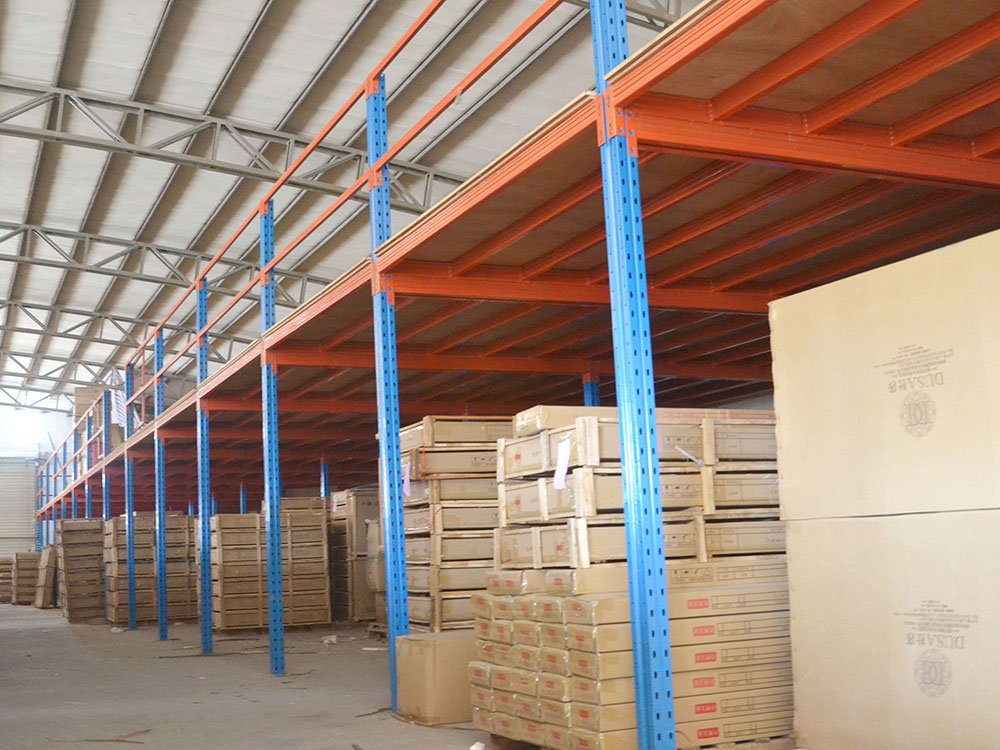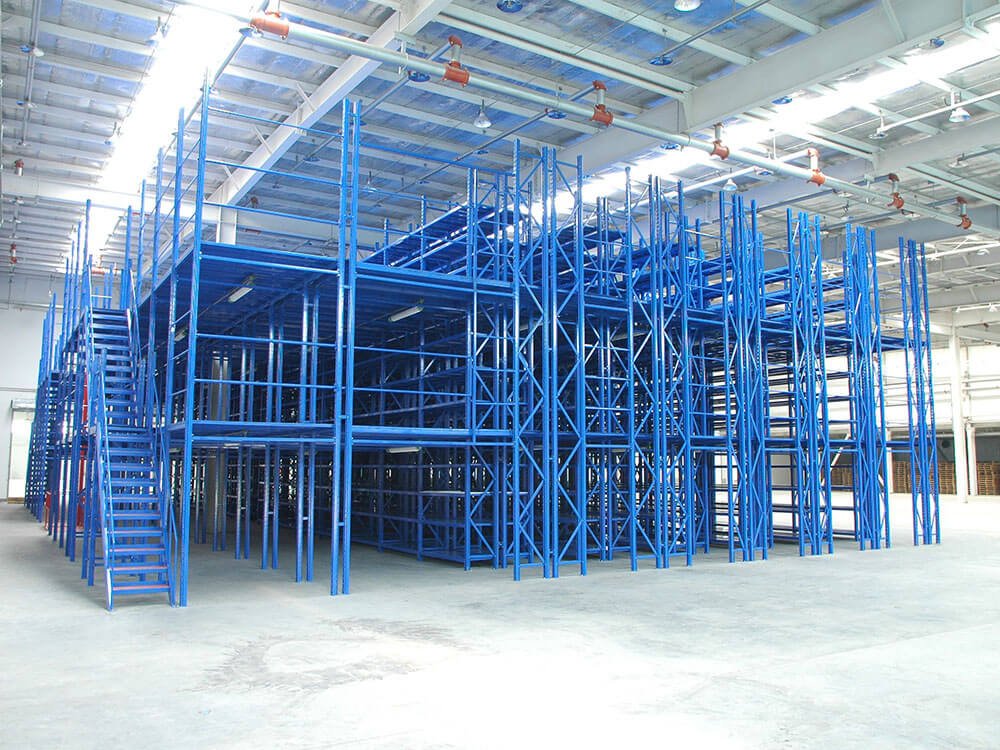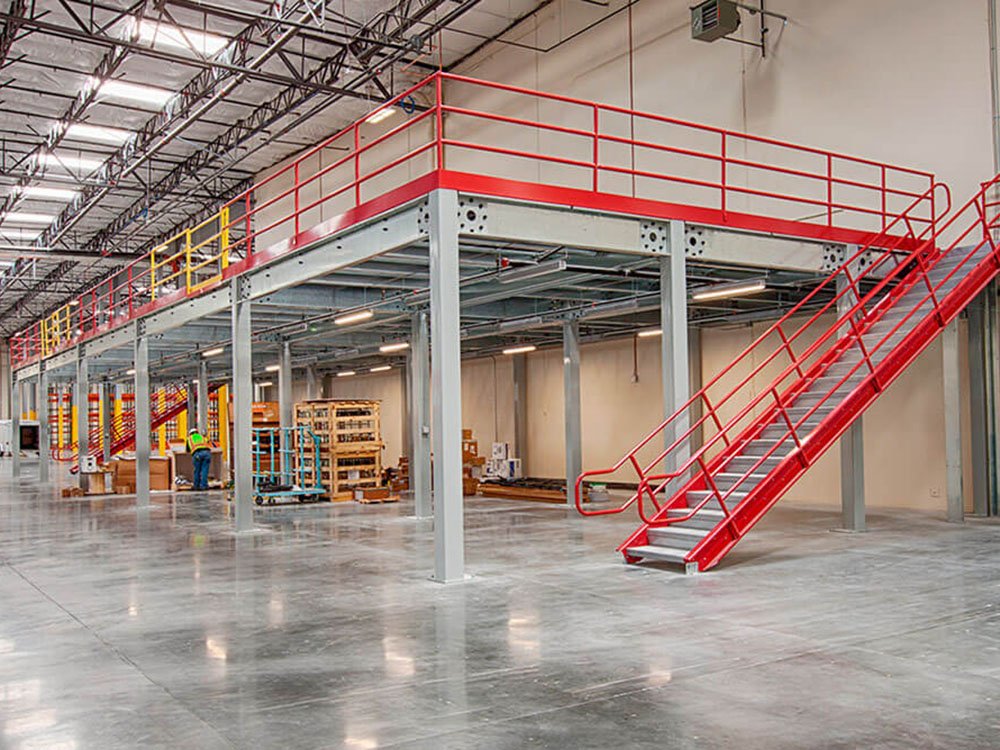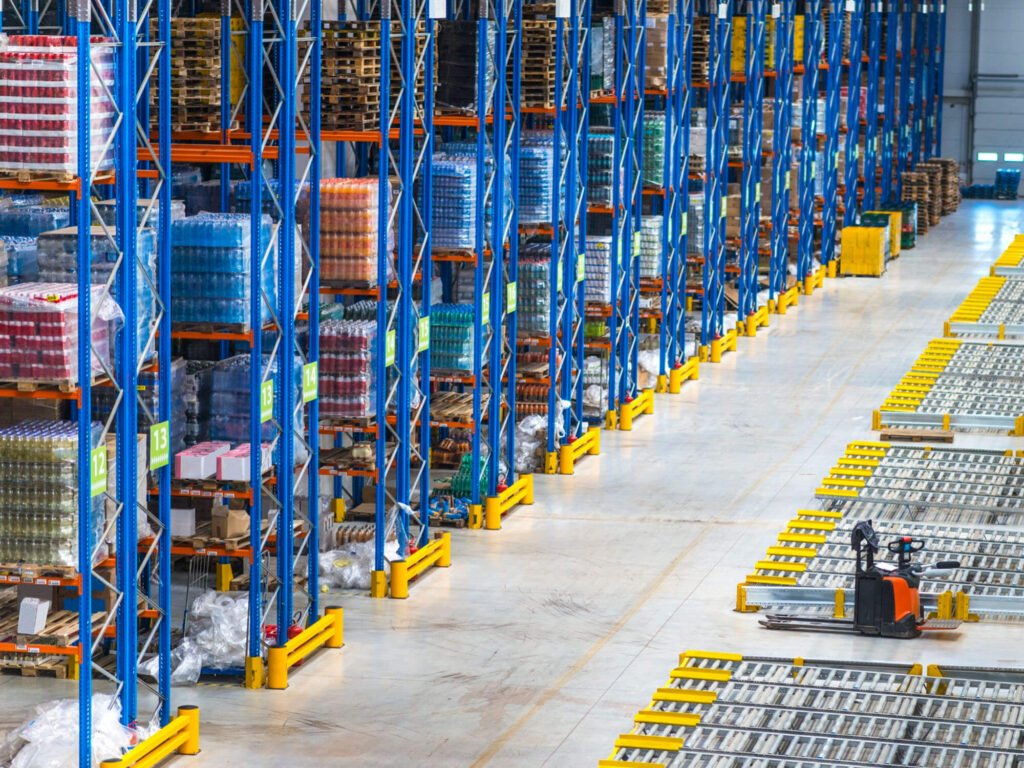Warehouse Mezzanine Floor System
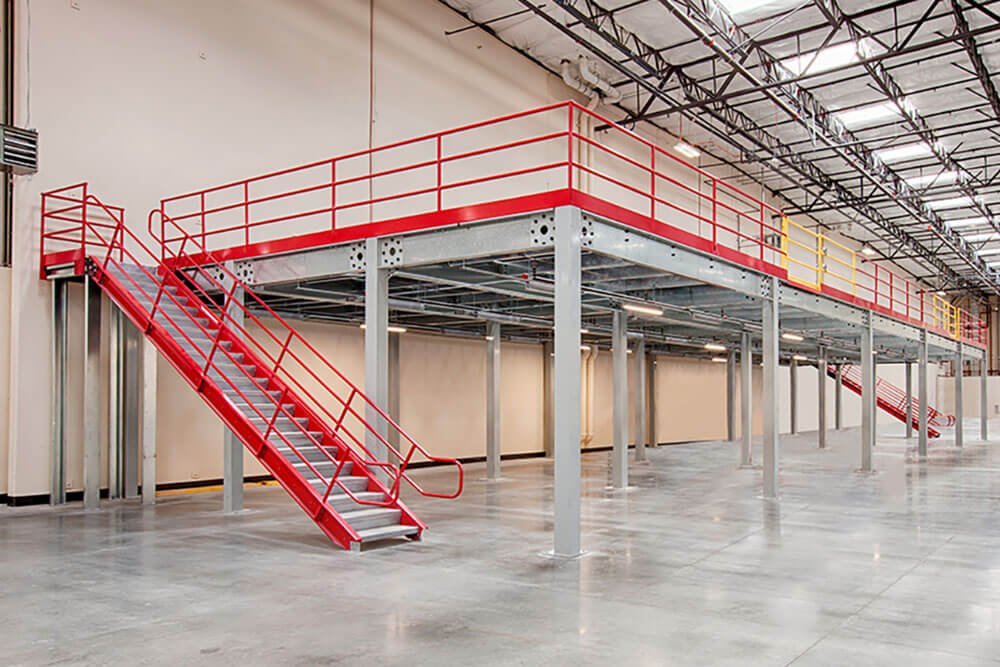
Warehouse Mezzanine Floor definition
A warehouse mezzanine floor system is a raised platform installed in a warehouse to provide additional space for storage, office or manufacturing needs. It is usually made of steel and can withstand heavy loads. Mezzanine floor systems can be freestanding or attached to a building’s existing structure, making them a cost-effective solution for expanding the space available in a warehouse. Mezzanine floor systems can help organizations improve inventory management and increase production capacity without the need for new warehouse facilities. Mezzanine floor systems are often customized, and businesses can approach a mezzanine floor manufacturer to design a mezzanine floor based on their storage needs.
Types of Warehouse Mezzanine Floor Systems
A mezzanine floor is an intermediate floor between the ground and the ceiling, which consists primarily of an upright frame, beams, support beams, floor panels, guardrails, and stairs. Mezzanine floor systems can be freestanding or attached to a building’s existing structure. Mezzanine floors have a load capacity of 200 to 500 kg per square meter and are suitable for storing light as well as medium-sized goods. The low cost and versatility of mezzanine floors make them a cost-effective solution for expanding the available space in a warehouse.
Mezzanine racking systems are high-density racking systems that combine mezzanine floors with pallet racking to optimize warehouse storage space. Mezzanine racking usually requires manual labor to manually carry out the storage of goods. It is suitable for storing small size and light weight goods, such as automobile spare parts, electronic components, and apparel industries.
An H-steel mezzanine is a steel platform consisting of H-beam columns and beams used to create a storage space for heavy goods or a mezzanine office in a warehouse or industrial space. H-steel mezzanines are known for their strength and durability, and with a typical load capacity of 1,000 to 3,000 kg per square meter, they are an excellent choice for expanding storage space in industrial warehouses.
Factors to Consider When Choosing a Warehouse Mezzanine Floor System
When choosing a warehouse mezzanine floor system, there are several factors to consider to ensure that the solution you choose is safe, cost-effective and meets the needs of your business. These factors include
1. load-bearing capacity: the mezzanine floor should be able to support the weight of stock and equipment.
2. safety and compliance: the mezzanine system should comply with local safety codes and regulations.
3. quality and durability: choose a mezzanine system that is made of quality materials and can withstand heavy-duty use. 4. customization: a good mezzanine system is one that can withstand heavy-duty use.
4. Customization: A good mezzanine system should be customizable to meet the unique storage needs of your warehouse.
5. Cost Effectiveness: It is important to balance the cost and benefits of a mezzanine system. Look for a warehouse mezzanine system that strikes the right balance between cost and functionality.
6. Installation: A mezzanine system should be easy to install and not take too much time, which can lead to increased costs.
Considering these factors, you can choose a mezzanine floor system that is suitable and affordable for your warehouse.
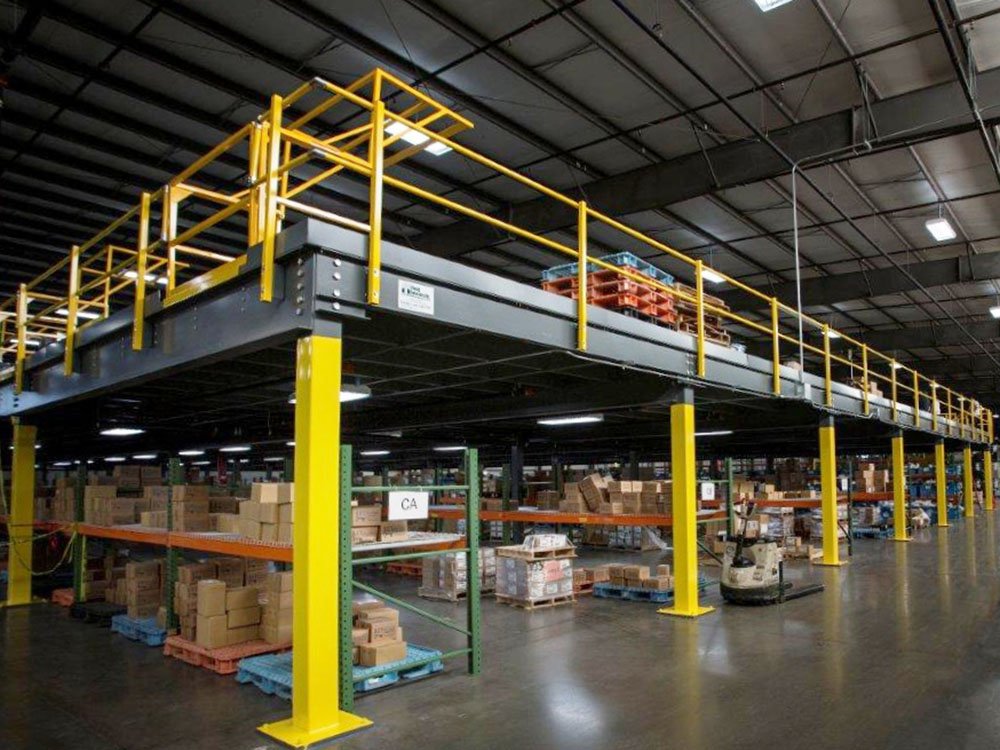
Installation and maintenance of warehouse mezzanine floor systems
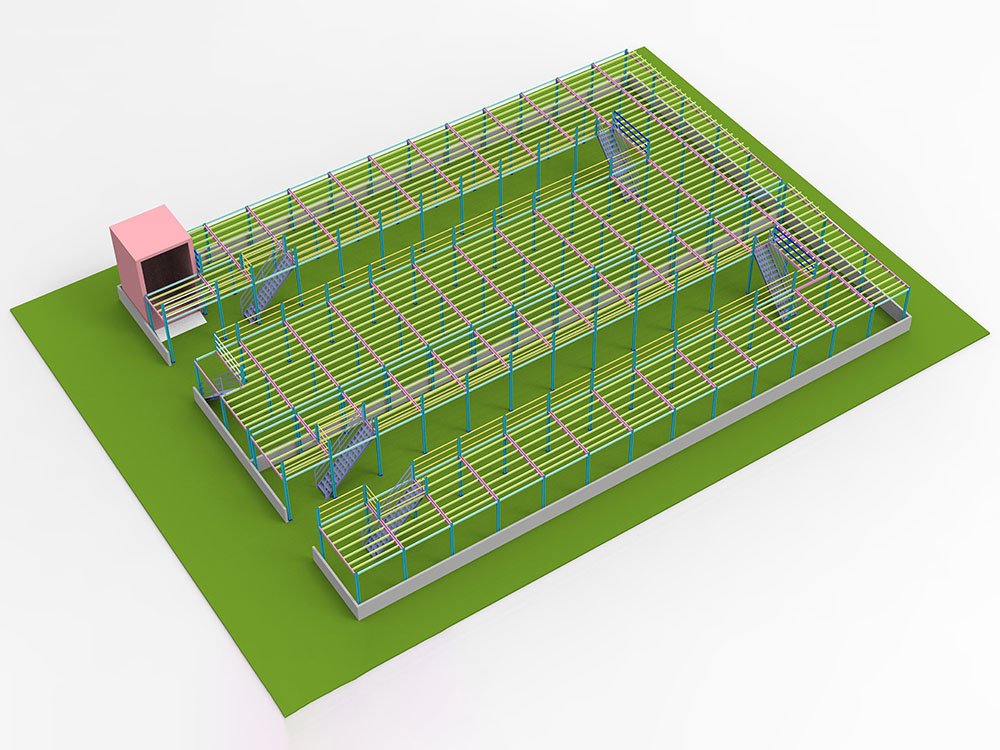
Proper installation of a mezzanine floor is critical to supporting the intended loads and ensuring the safety of warehouse personnel working on the mezzanine platform. Mezzanine floors often require professional installers to carry out the installation work. professional installation helps to prevent common structural problems such as misalignment and uneven load distribution that can affect the stability of a mezzanine floor over time. Lracking can provide you with installation drawings free of charge, and can also provide a mezzanine installation service if required.
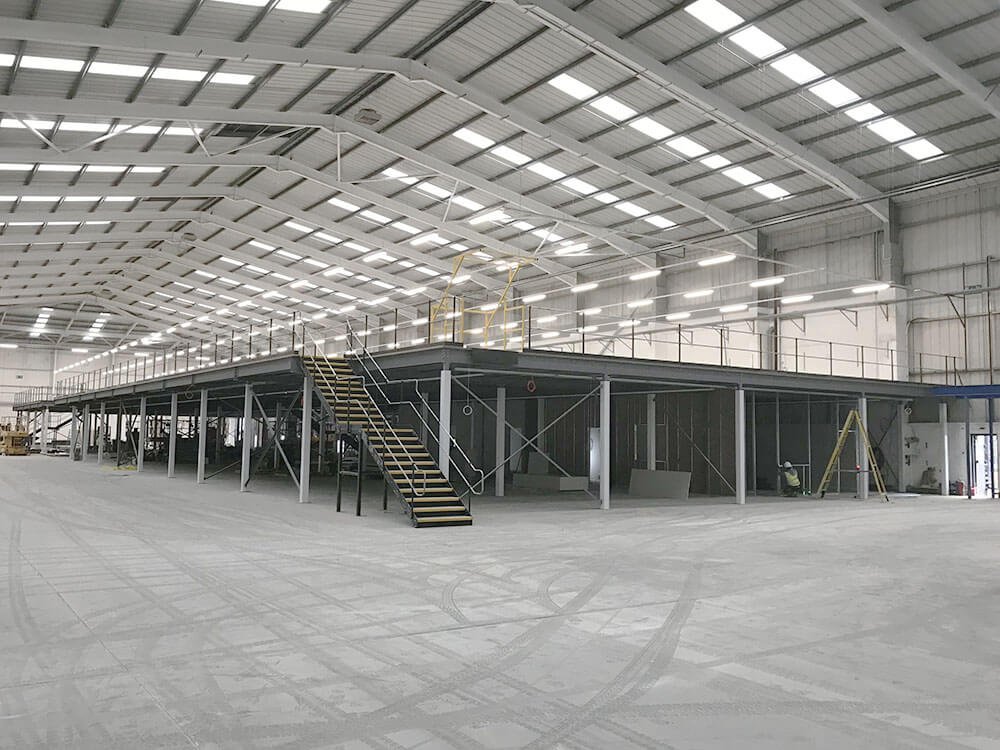
Mezzanine floor maintenance is essential to ensure the safety and increase the life of your mezzanine floor. Regular mezzanine floor maintenance helps to identify and address signs of damage and corrosion on mezzanine floor components, ensuring that the mezzanine floor remains functionally intact. Lracking has a regular maintenance program for the mezzanine floors we sell. Proactive mezzanine floor maintenance helps to identify and address potential safety hazards, reducing the risk of safety incidents, falls, or collapses of the mezzanine floor.

